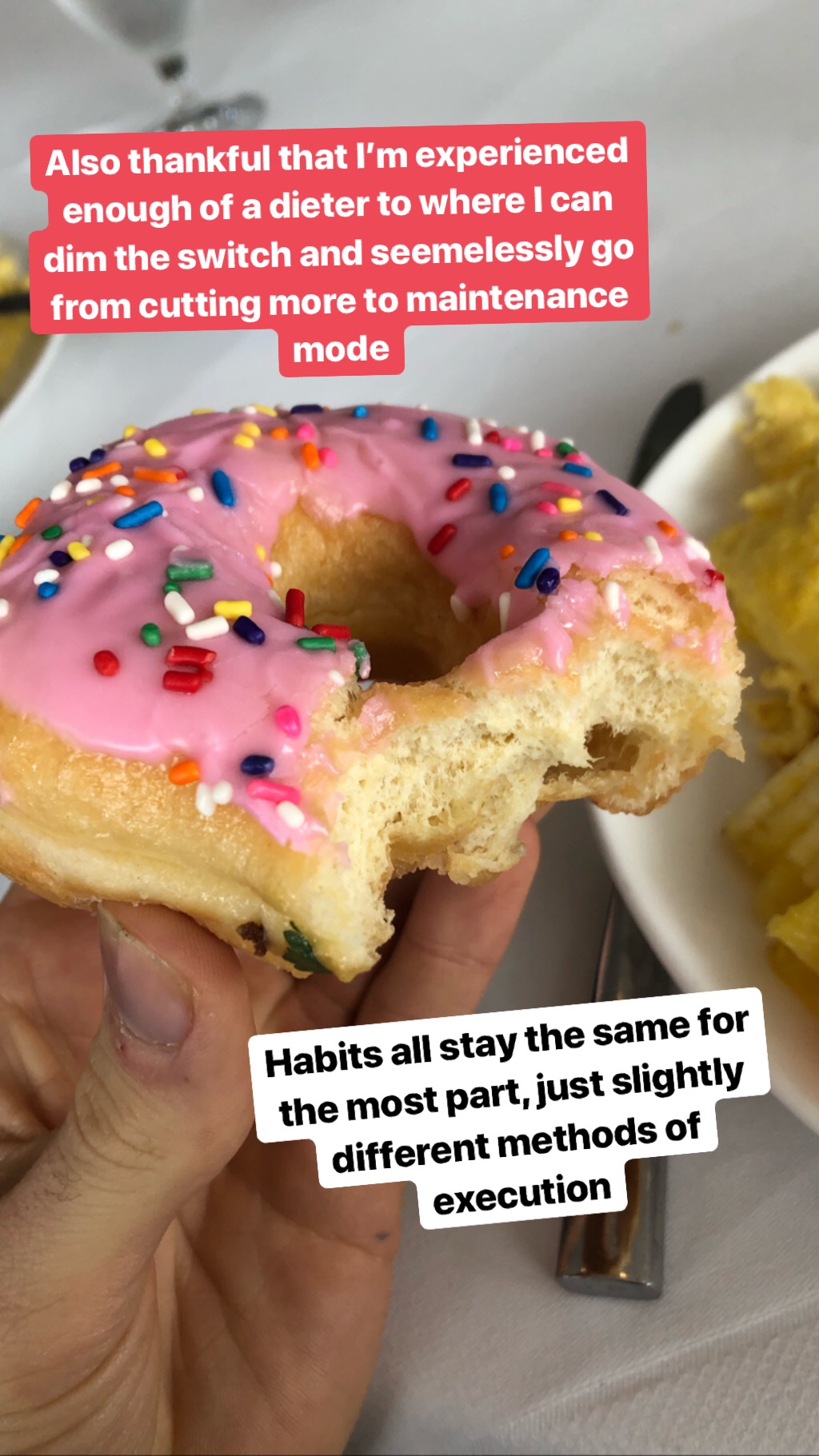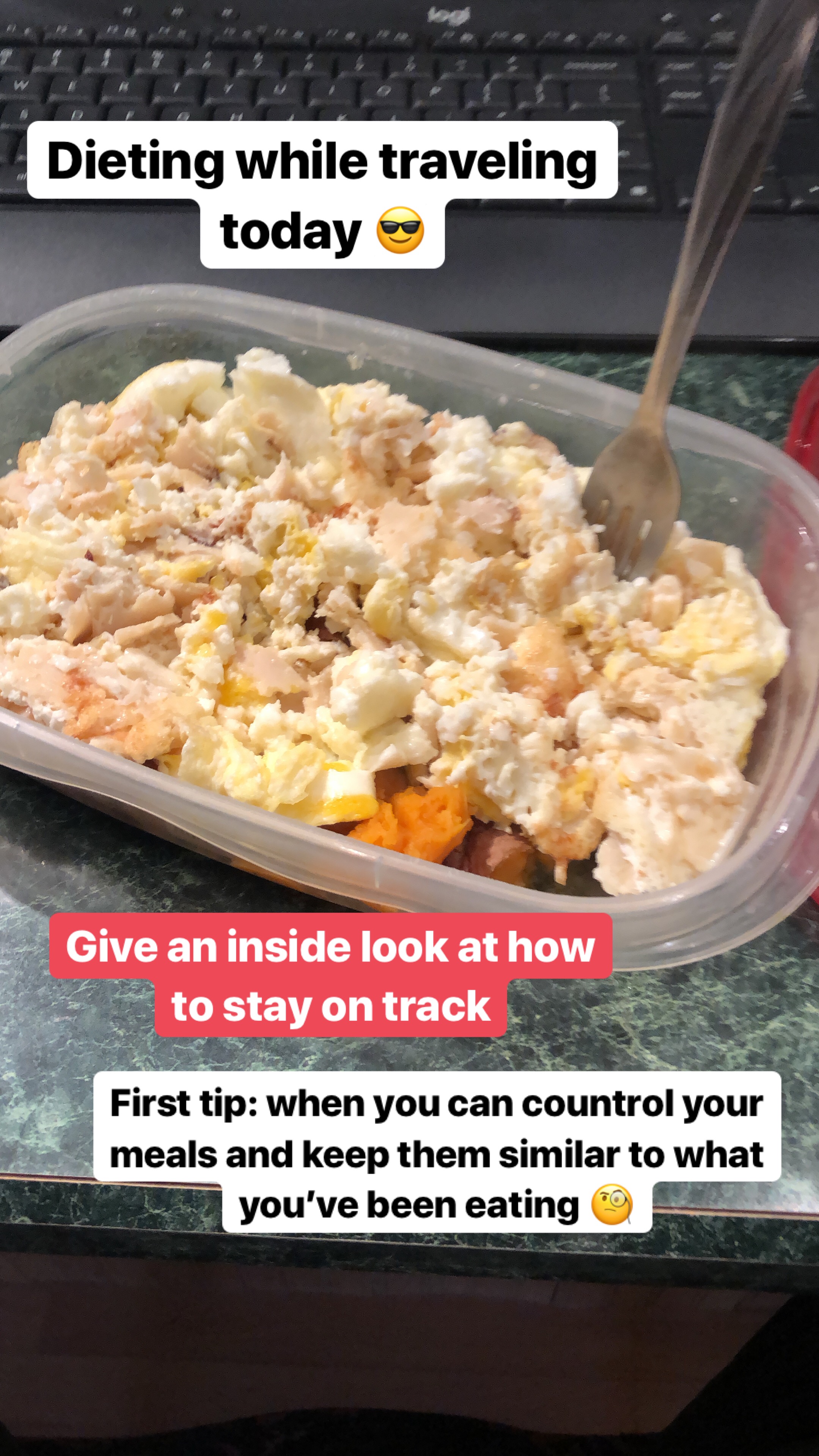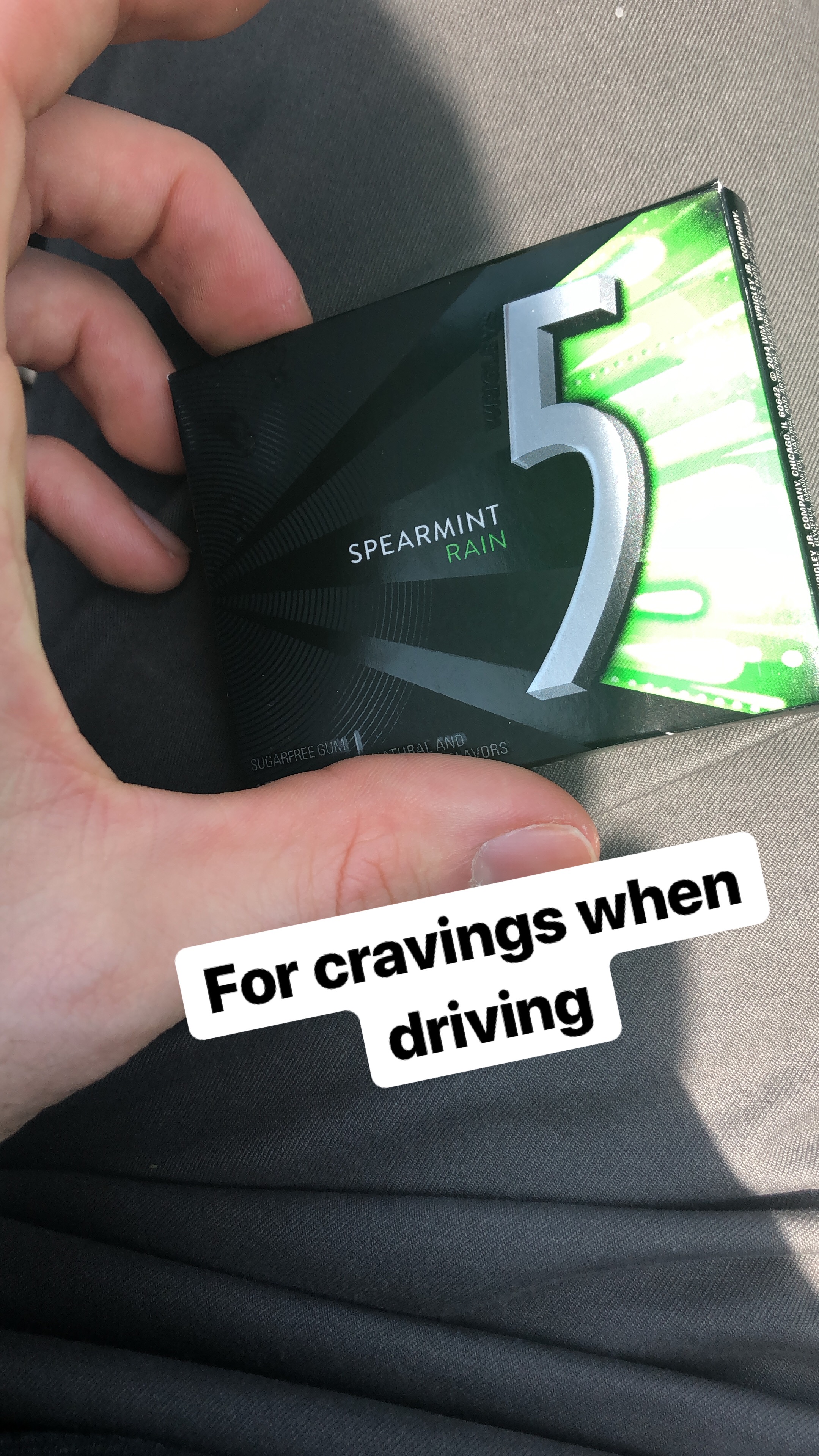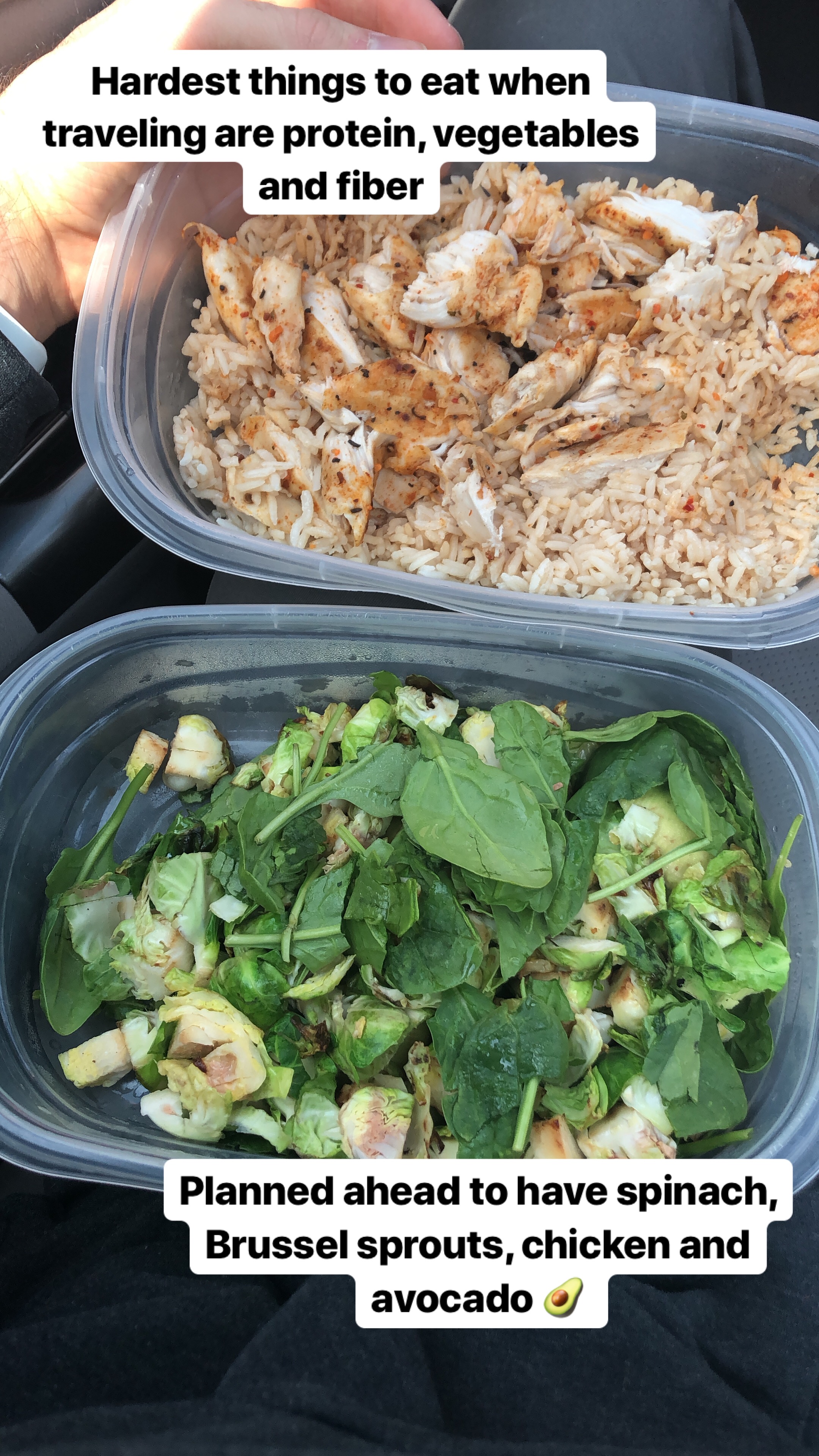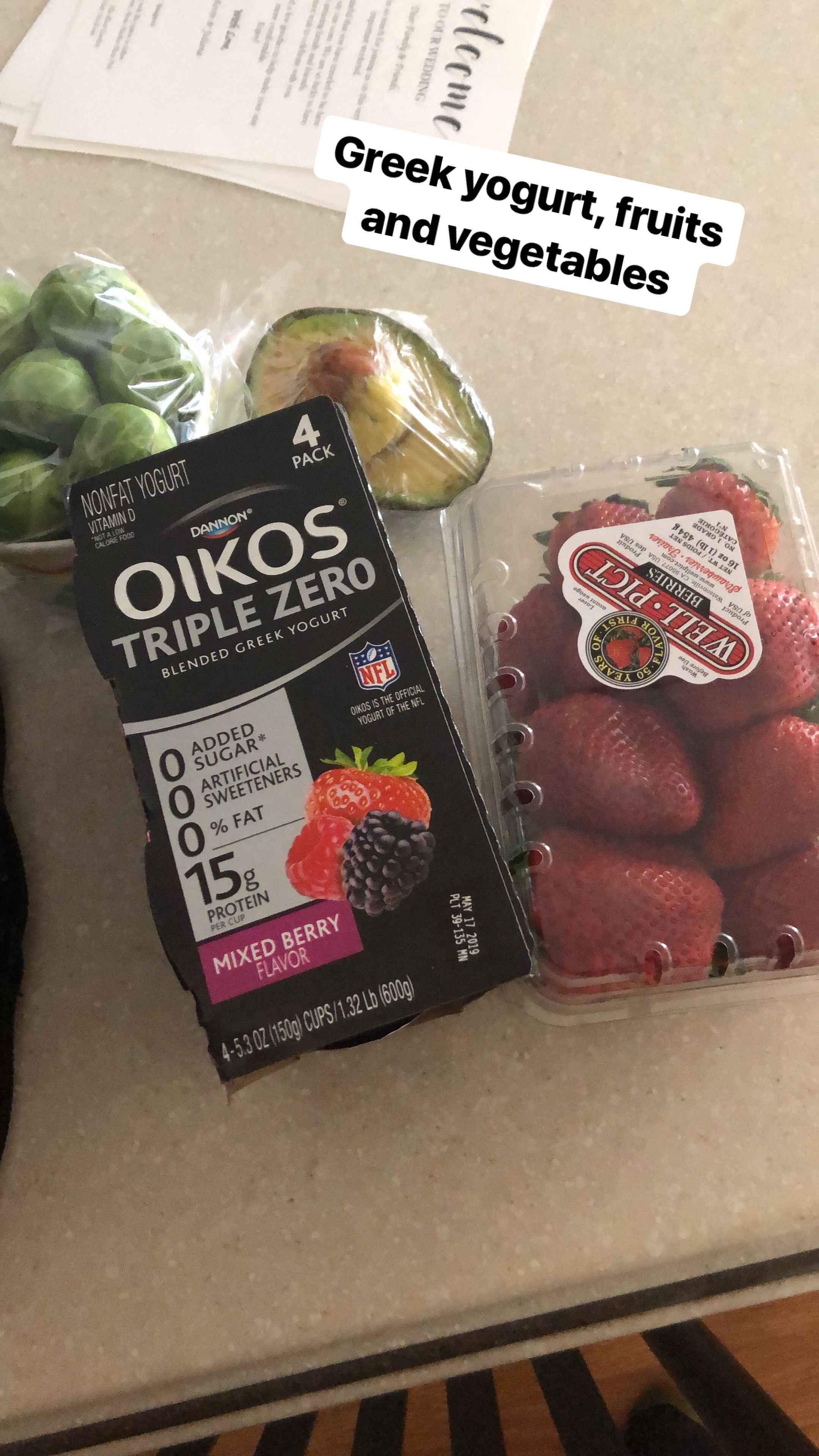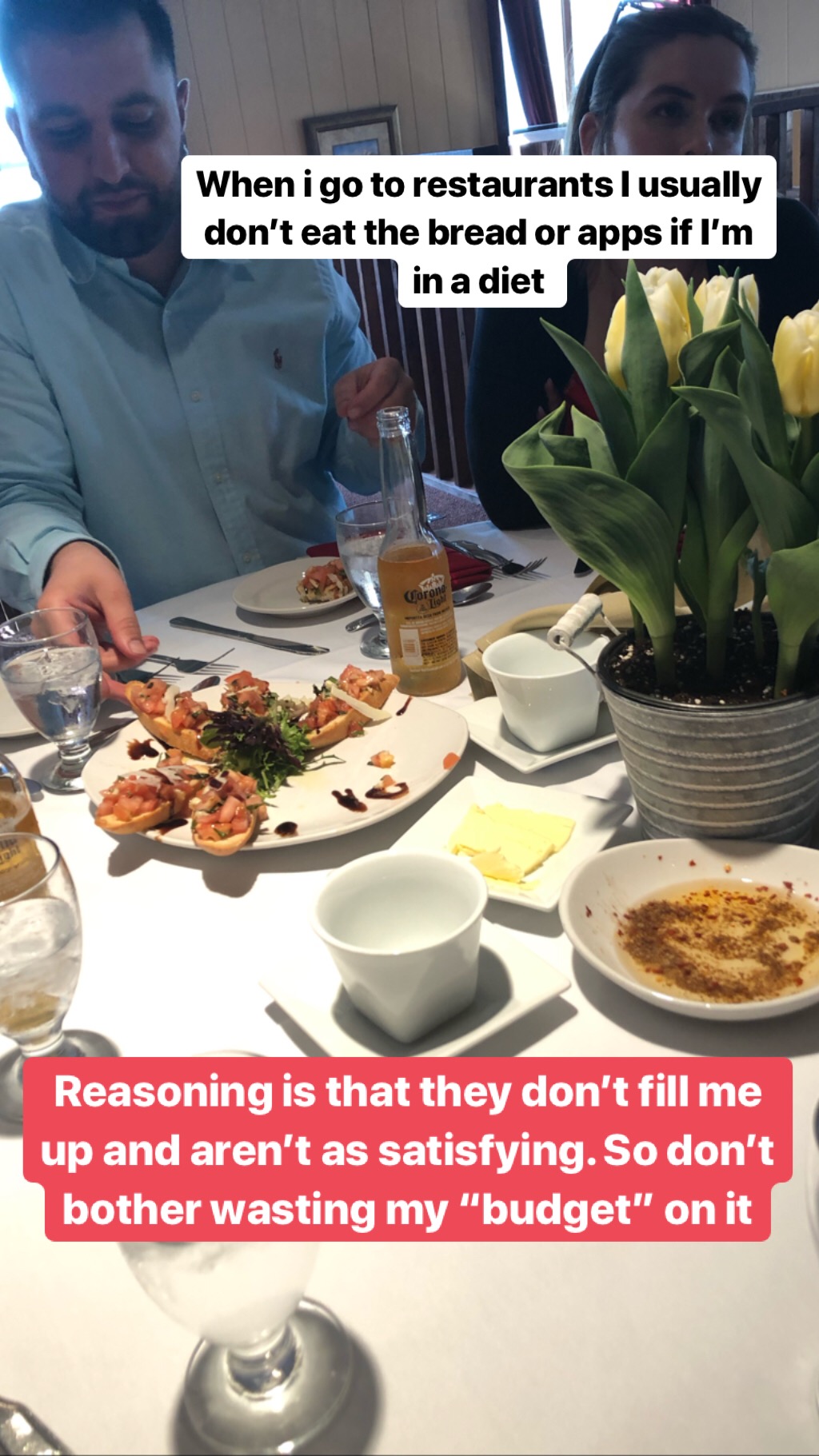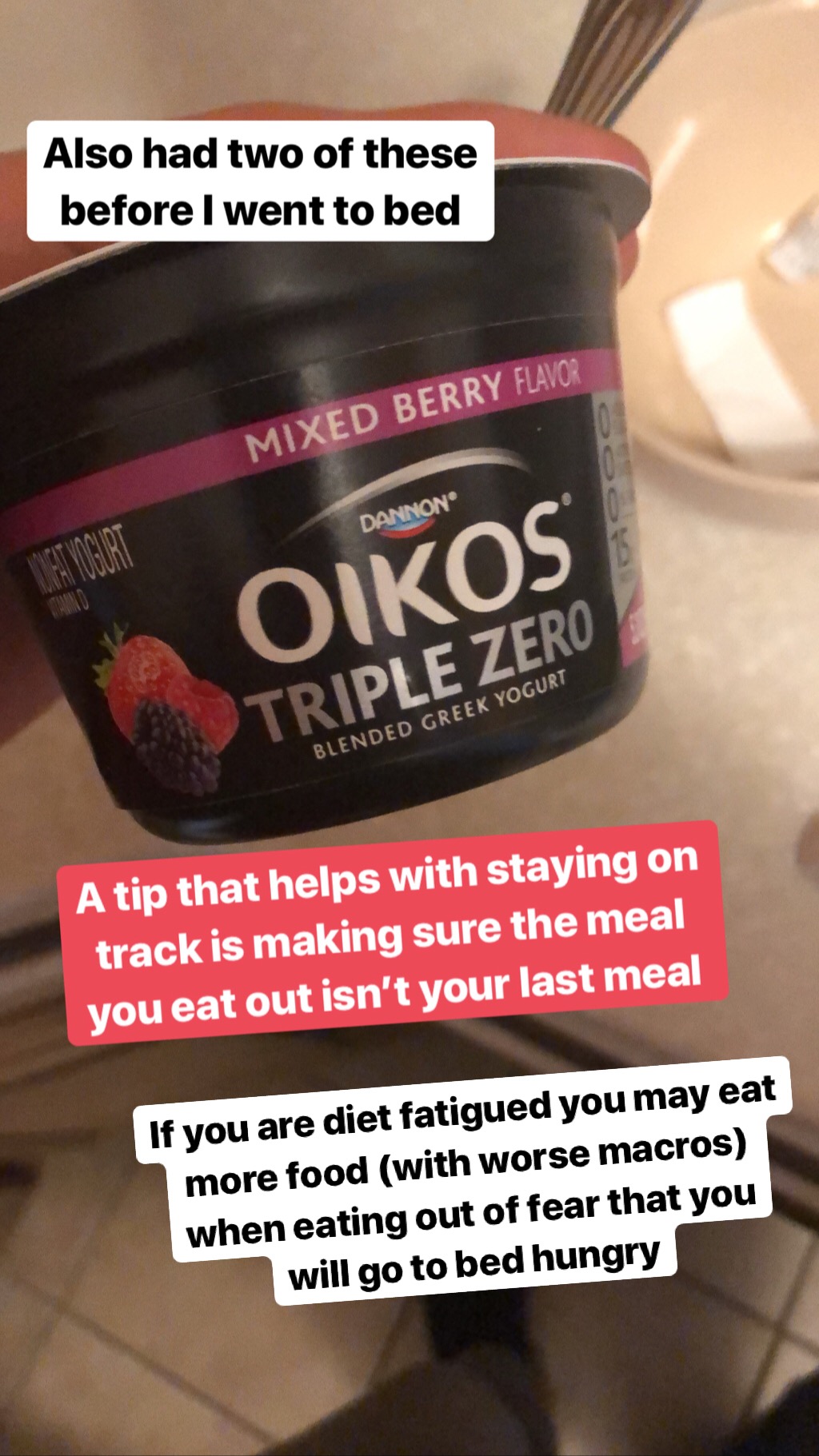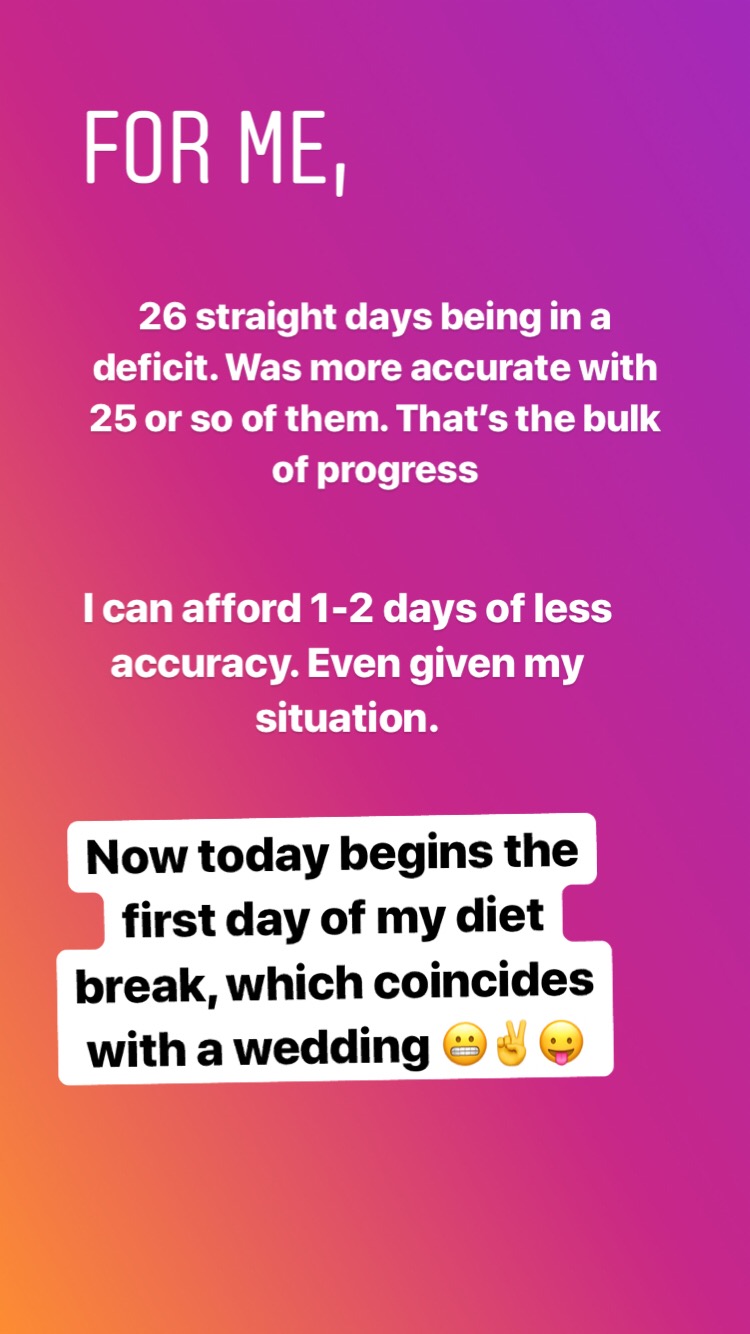Brandon's Contest Prep: Week 5
RECAP
Another 4 weeks of dieting are officially in the books!
As mentioned in week 4, I was starting to get pretty beat up. A combination of training, diet and life stressors built up a LOT of accumulated fatigue.
taking breaks
Once you reach a tipping point of fatigue, it's important to take a structured and controlled BREAK from things. If you keep pushing yourself harder and harder, you’re going to eventually reach a tipping point and run yourself into the ground.
A big revelation this week happened because I took a break. Week 5 was a good time to assess how things were going. But first, here are some peculiar points leading up to this week:
I was in a calorie deficit for 27 straight days beforehand
My weight had more or less stalled to right around ~173 lbs for the past two weeks.
I did not miss any training sessions, nights of sleep or macros on any of the days.
I theorized to be holding onto some edema due to a combination of these stressors (more on this in week 3)
This diet break coincided with one of my best friend’s wedding! (my approach covered in the Nutrition Section)
I had “dimmed down” my bodybuilding/dieter mindset a tad going into the rehearsal dinner on Thursday (the 27th and last day of the calorie deficit for this phase) and turned in down a little more for the wedding Friday.
During the wedding, I
Relaxed and didn’t log into MyFitnessPal
Ate probably around maintenance (included more carbs and fats than normal)
Only had 1 drink, but several desserts
Went to sleep tired, pretty full and slept over 9 hours
“whoosh” effect
This may be TMI, but I usually talk to my clients about this. The first night after the wedding I woke up in the middle of the night to piss and then pissed again once I woke up. It was like a RUSH of water was just coming out of me. I also did not drink an overabundance of fluid during the events to make me go more.
When I woke up, my muscles appeared to be full of glycogen (because of extra food and carbs).
I was not as sore as I was the day before and I felt comparatively less stressed than I was when I was in the deficit.
Upon passing, the AMAZING lighting that was in our apartment, I could see cuts and definition on my body that were NOT there in previous weeks let alone the day BEFORE.
Scale Weight trends down even after eating more food than the previous week
I took advantage and took some dope progress pics to really show what had been masked when in the diet (Below).
Later during the week, even with eating MORE food than last week (because of the diet break), my scale weight was starting to even out and dip down a tad. This just shows that part of the masking of the scale weight was because of the added stress and edema, which partially confirmed my theory.
The rush of water leaving my body was a sign that the water was coming out. Remember that for the scale to actually get lower, there has to be a loss of body mass somewhere and most of the time it's fluid excretion. For a reminder of how a change of energy correlates to a change in body weight read this (HERE).
NUTRITION
my Approach to diet breaks:
The first point about diet breaks is that there are a multitude of ways to do them. Over time, it's important to be reflective of your process and see how you benefit from certain approaches as opposed to others.
That being said, here was the approach that I implemented for this week:
My maintenance calories are about 400 or so more from the deficit that I was in
Why this Diet Break was similar to others:
I was able to line it up with big events that were going to be extremely impractical to track or eat in a deficit. I was able to line up previous diet breaks with: a bachelor party, birthday celebration, date nights, nights out in the city with friends/family, and times I had to travel
I kept in a meal template during the week (which I talked about in week 4) so my weekly routine otherwise was not all that different
I was able to fit in some foods I normally don’t get to eat as often when in a deficit (donut pic)
Why my situation is different:
I am in the midst of a contest prep, and therefore had to be as rigid as I could have given how deep I am in
I had probably a 90-95% accuracy range of my macros when I dieted the phase before and did not have any refeeds or maintenance days prior
I have done this approach for 2 years now and have tracked macros and done flexible dieting for 3.5 years
The training I do has my deload week coincide with my week long diet break (more on that later)
I maintained a weekly calorie deficit in the past through thanksgiving, christmas, new years, 3 day weekend in Boston. And therefore, I know how to eat during events.
Sharing an approach can be dangerous if not given with the disclaimers of your overall situation.
But, I do find that sharing an approach can spark the imagination and critical thinking skills of those who are seeking to refine THEIR process. And because of this, I think it could be useful for me to share how I stayed on track during the day of the rehearsal dinner where I more or less hit my macro targets for that last day of dieting:
Adding foods back in:
One last topic to cover is HOW did I pick and choose what foods were important to add back in when on this diet break?
As this is a very common question and topic, feel free to dive into the following article which gives my thoughts on the process.
TRAINING
my approach to deloads
As mentioned above, my diet break coincides with a period of easier “Deload” training. My Coach and I pre-plan our deload/diet breaks every 5th week.
Purpose: The main purpose of the deload is to reduce training fatigue that has built up over the accumulation of the training cycle. This is why the deload week also comes right after the “overreaching week” in week 4.
Did not go to the gym the day of the wedding
Fatigue is dissipated primarily through the temporary reduction in training volume. The way we set it up is to:
Reduce total number of sets to above 2 per exercise
1st half of week: weight on the bar about 90% of week 4, total reps reduced by half for that of week 4. Still some tension on the muscles to help remind them to stick around.
2nd half of week: 50% weight on the bar from week 4, reps reduced by half. This serves as a super light “circuit” workout just to help get rid of any lingering fatigue.
Deloads are essentially the way of dissipating fatigue whilst simultaneously retaining your training abilities such that you can start at a reasonable point in next training block.
Days off:
In periods of dieting and hard training, I find that a psychological break is sometimes needed as well from the gym. Therefore, because of environmental circumstances and the deload, I did not go to the gym for 3 days and subsequently did my deload starting on day 4 of my diet break.
I love training and I love bodybuilding. But I’ve messed up a lot in the past of getting too attached and meticulous about all aspects of it. At times, it pays off for me to have strategic breaks in your training to “desensitize” from it all and come back with the fire you had when you started in the beginning.
MINDSET
eating more
One thing that can be hard to justify is eating MORE to get leaner. It can be hard to keep dimming ON and OFF the switch without getting “stuck” into one mindset.
Turning off the dieting mindset: can be great to decompress and de-stress from what you just went through and give you a much needed break to keep going.
Unfortunately, going too far back to normal eating might be depressing and can remind you of how nice it is to have energy and full stomach most of the time, hence, making the transition back bitter sweet.
Sticking to the dieting mindset: can be great to keep the habit and routine that was successful when dieting. The momentum could potentially set you up for success. It can be detrimental because the longer you diet, the HARDER your body will fight back at you (more on that here) and taking a break is something that will set you up for long term success.
To reiterate, that is why having actionable, simple adjustments to your diet from one phase to another is important. Otherwise, watch this video for something I normally say to myself and clients when they are struggling to dim down their “dieting” mindset.
summary points
Calories: The food you eat now is in a structured format/template and therefore, the laws of thermodynamics will not abandon us. Calories are still calories and that goes both ways, up AND down.
Awareness: Eating the food now is going to give your body a break because sometimes we lose that ability to realize what true energy and satiation is. Not to mention the practice of these breaks are valuable for transitioning out of your diet at the tail end.
Reflection: In the future, it is important to be reflective of these breaks, but still implement and trust the game plan. There are many different ways to take these breaks and an individualized gameplan can only be developed over time. But that first requires that you follow the route you planned in the first place and trust yourself or your coach’s judgement.
conclusion
Week 5 was great to decompress.
In a way, it was the calm before the storm. Because next week was the beginning of the hardest stretch of prep.
Stay tuned!
Any further questions, ask me on Instagram @brandonjod







